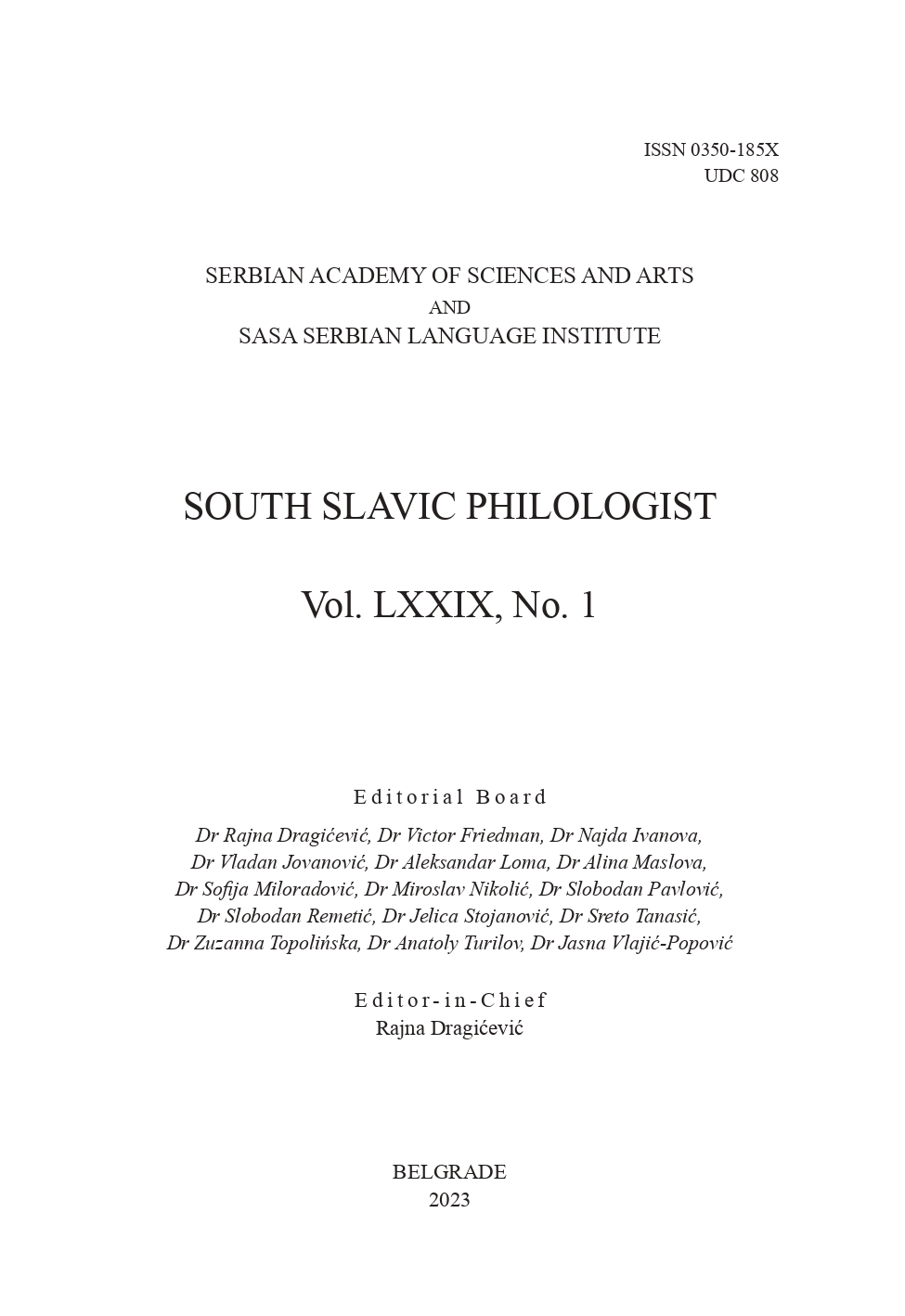ЛИНГВИСТИЧКО ИСТРАЖИВАЊЕ ЈЕДНОСЛОЖНЕ ИЛИ МУШКЕ РИМЕ У СРПСКОЈ ПОЕЗИЈИ
A LINGUISTIC INVESTIGATION OF MONOSYLLABIC OR MASCULINE RHYMES IN SERBIAN POETRY
Author(s): Draga S. ZecSubject(s): Language studies, Theoretical Linguistics, Theory of Literature
Published by: Институт за српски језик Српске академије наука и уметности
Keywords: sound repetition; rhyme; masculine rhyme; domain of rhyme; word stress; demarcative function of stress
Summary/Abstract: This paper focuses on the prosodic properties of monosyllabic, that is, masculine rhymes in Serbian poetry. Word stress has been identified as a crucial prosodic feature of Serbian rhyme in general, and of masculine rhyme in particular, based on a quantitatively analyzed poetic database, which includes eight poets, four from the Romantic and four from the post-Romantic period. The role of stress is demarcative: it signals the beginning of the domain of rhyme, thereby considerably promoting its effectiveness. However, the presence of stress within the rhyme domain is not obligatory. The most effective are resonant rhymes, with demarcated domains in both lines, next in effectiveness are semi-resonant rhymes, with demarcation in only one of the lines, while nonresonant rhymes, which lack demarcation, are the least effective. Masculine rhymes are indistinct from feminine rhymes in terms of their prosodic organization, but differ significantly in terms of their linguistic realization. The lexical material provided by the Serbian grammatical system is only partially adequate for realizing masculine rhymes. The most effective resonant rhymes are formed exclusively by monosyllabic words, which are an extremely rare prosodic profile in the Serbian lexicon. On the other hand, the least effective nonresonant rhymes are exclusively formed by polysyllabic words, which are a dominant prosodic profile in the Serbian lexicon, but often yield infelicitous, barely recognizable rhymes. It is notable that masculine rhymes are not used by all poets in our database, which may well be due to the onerous lexical constraints on their formation. Masculine rhymes are in fact used by only four poets: three from the Romantic, and only one from the post-Romantic period.
Journal: Јужнословенски филолог
- Issue Year: 79/2023
- Issue No: 1
- Page Range: 121-158
- Page Count: 38
- Language: Serbian

